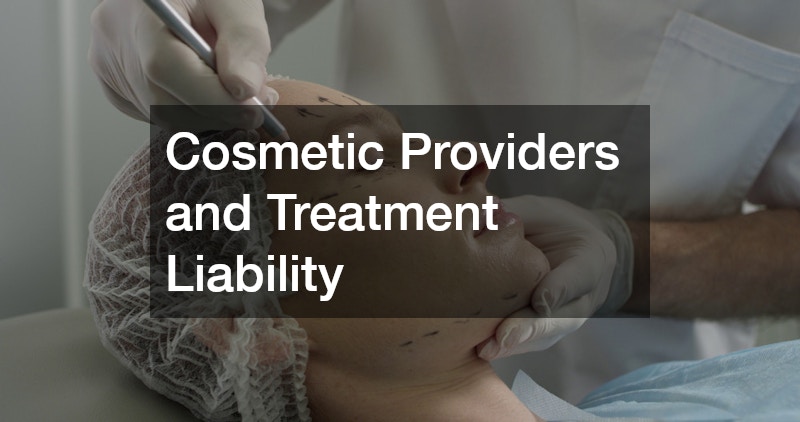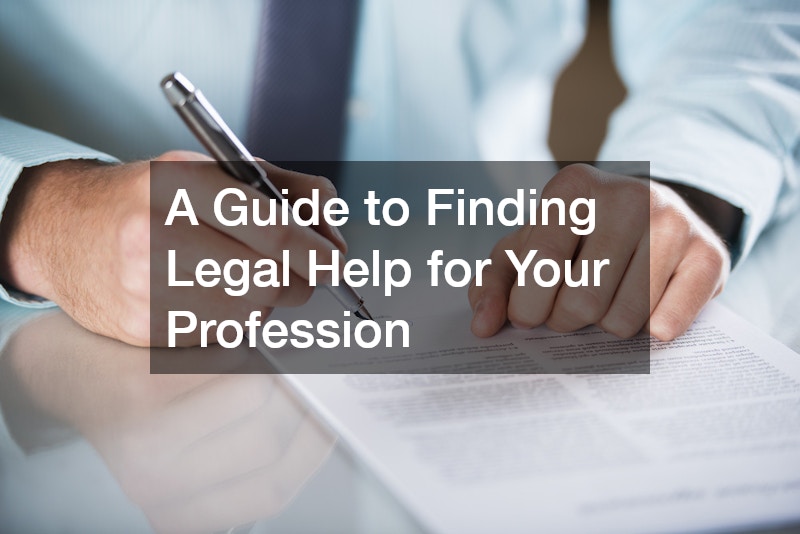
In every professional field, legal support is not just helpful—it’s essential. Whether you’re launching a business, managing patient records, or coordinating public events, the legal landscape can be complex and risky without expert guidance. Navigating contracts, liability, licensing, and regulatory issues requires the help of legal professionals who understand the specific challenges of your industry. Fortunately, many law firms now offer a free phone consultation to help potential clients understand their options before committing to representation. This makes it easier to explore legal solutions without upfront cost or obligation. In this comprehensive guide, we’ll explore how professionals from a variety of sectors—healthcare, construction, hospitality, and more—can find legal help that’s tailored to their unique needs. Each section offers insight into specific challenges and how legal support can empower professionals to focus on their work with confidence. From small business owners to healthcare providers and facility operators, this guide outlines the importance of industry-specific legal support and where to start. Let’s dive in.
Legal Support for Startup Professionals
If you’re an entrepreneur, legal guidance is essential from the very beginning. Whether you’re choosing the right business structure, drafting partnership agreements, or protecting intellectual property, having a lawyer on your side can prevent costly mistakes. Entrepreneurs often operate with limited resources and must make crucial decisions quickly—decisions that could lead to future legal complications if not carefully considered. Startups also face the challenge of employment law, tax compliance, and raising capital, all of which benefit from legal oversight. Fortunately, many firms that cater to small businesses offer a free phone consultation so entrepreneurs can explain their goals and receive targeted advice. This early legal help sets the foundation for long-term success and ensures you’re operating within the law from day one. Choosing a lawyer with experience in startups is important—they understand the urgency and versatility required to support growing businesses. Additionally, legal teams can help draft terms of service, review vendor contracts, and offer guidance on trademarks or branding concerns. The right legal partner helps new businesses scale while avoiding unnecessary risks.
Legal Considerations for Health and Wellness Providers

For professionals in the medical and wellness fields, navigating regulations can be especially challenging. This is particularly true for detox doctors, who must adhere to strict licensing, patient privacy, and controlled substance protocols. Any misstep could result in liability issues or even license revocation. Legal assistance can help providers create airtight policies and procedures that protect both the practice and the patient. Lawyers familiar with medical law can also defend against malpractice claims, audit risks, and regulatory violations. A free phone consultation is a good first step to understanding your rights and responsibilities. Many attorneys will review your existing compliance systems or contracts to identify potential weak spots. They can also help with business formation, especially for private or concierge detox practices, which face added scrutiny. Keeping up with federal and state healthcare laws is no small task, and having a trusted legal advisor ensures you’re never caught off guard. With the right legal foundation, detox specialists can focus on delivering care while their attorneys handle the rest.
Dental Practices and Legal Preparedness
Operating as a dentist means balancing patient care with administrative demands, and legal matters are a key part of that equation. Dentists face potential exposure to liability, regulatory violations, and employment disputes. Managing patient records, billing practices, and malpractice insurance are just a few areas where legal oversight is valuable. Moreover, dentists entering partnerships or buying into a practice need contract review and negotiation support. A lawyer can help evaluate lease agreements, employment contracts, and nondisclosure agreements to ensure your practice is protected. Many dental professionals benefit from a free phone consultation with a healthcare attorney before taking any major legal step. This helps you understand what issues are specific to dental law, such as informed consent policies or compliance with ADA (Americans with Disabilities Act) guidelines. An experienced legal partner not only mitigates risk but can also offer guidance on issues like HIPAA compliance or telehealth expansion. By working closely with an attorney, dental practices can remain focused on patients rather than paperwork, knowing they’re backed by a strong legal infrastructure.
Cosmetic Providers and Treatment Liability

Aesthetic services are on the rise, but with popularity comes legal complexity. Providers offering dermal fillers treatment face unique risks tied to patient consent, product use, and post-treatment care. From a legal perspective, these treatments fall under medical procedures, meaning there are strict documentation and compliance requirements. Even a minor patient complaint can escalate into a serious legal issue without proper protections in place. That’s why legal support is essential for cosmetic clinics, med spas, and individual providers. A free phone consultation with a healthcare attorney can help evaluate liability coverage, contract templates, and informed consent protocols. Many legal professionals now specialize in cosmetic law and can assist with licensing, supplier agreements, and service disclaimers. Marketing practices are another area of legal sensitivity—what you claim in your advertising must align with what’s medically accurate and legally defensible. With the right legal guidance, aesthetic professionals can continue offering transformative treatments while minimizing the risk of disputes or litigation. Building trust with patients starts by having a compliant, legally sound practice.
Event Professionals and Legal Planning
Hosting and managing an event venue comes with countless moving parts—and legal obligations at every turn. From booking contracts and insurance to noise ordinances and liquor licenses, event organizers must stay compliant or risk costly consequences. Venues are also at risk for property damage, personal injury claims, and disputes with vendors or clients. Legal professionals help create clear contracts that outline expectations and protect against liability. If you manage or own a venue, consider a free phone consultation with an attorney experienced in hospitality or commercial property law. They can help you draft rental agreements, review insurance requirements, and advise on emergency protocols. Whether your venue hosts weddings, concerts, or conferences, legal readiness ensures that every event runs smoothly. You’ll also benefit from guidance on health and safety regulations, ADA compliance, and employee or contractor classification. Legal preparation allows you to focus on providing memorable experiences rather than handling post-event disputes. When the details are covered legally, your business reputation—and bottom line—stay intact.
Building and Construction Professionals

The construction industry involves significant liability, especially for professional roofing contractors who work at heights, manage subcontractors, and handle structural materials. Issues related to permits, warranties, or safety protocols can lead to major legal consequences if not properly managed. Whether you’re working on commercial or residential projects, having legal support ensures compliance with local building codes, zoning laws, and OSHA regulations. A free phone consultation with a construction lawyer is a great way to identify areas of legal risk. These attorneys can assist with drafting client agreements, reviewing project scopes, and resolving payment disputes. Additionally, roofing contractors often face challenges with lien rights and delayed payments, making contract enforcement critical. The legal complexity increases further when you work with homeowners, insurance companies, or developers. By retaining a lawyer with construction experience, you protect your reputation and reduce the risk of project delays or costly legal battles. Being proactive about legal support is not just smart—it’s part of doing quality, professional work in an industry where standards matter.
Legal Guidance for Senior Living Operators
Running or managing a memory care facility is both rewarding and highly regulated. These facilities must comply with stringent healthcare laws, elder care guidelines, and state licensing standards. Any lapse in oversight could jeopardize the well-being of residents and the future of the facility. That’s why operators must work closely with legal professionals to draft policies, handle family disputes, and manage employment issues. From HIPAA compliance to end-of-life care decisions, the legal terrain can be complex. A free phone consultation with an elder law or healthcare attorney can help facilities assess their current legal setup. These professionals also provide support for staff training, incident reporting, and resident agreements. As memory care facilities are held to high standards of care and safety, legal preparedness is non-negotiable. Whether you’re opening a new center or updating policies for an existing one, legal insight ensures you’re meeting both legal and ethical obligations. When legal protections are in place, your team can focus on delivering compassionate care with confidence and clarity.
Aesthetic Advancements and Medical Law

Cosmetic and anti-aging procedures continue to grow in popularity, with new technologies reshaping the field. One such innovation, pdo threads, is used for non-surgical face lifting. While minimally invasive, these procedures still fall under the umbrella of medical treatment, bringing with them a host of legal considerations. From consent forms to supplier contracts, every aspect must be legally sound to avoid complications. Patients are increasingly savvy and more likely to pursue legal action if results don’t meet expectations. A free phone consultation with a healthcare attorney can help practitioners understand their liability exposure and protect their practice. Licensing, malpractice insurance, and scope-of-practice laws vary by state, and a good attorney will guide you through these complexities. Additionally, social media marketing for these treatments can blur legal boundaries if not handled carefully. Ensuring that all promotional language is accurate and non-deceptive protects you from regulatory scrutiny. By building a legally secure foundation, providers of aesthetic procedures can offer innovative treatments with reduced risk and increased client trust.
Environmental Concerns and Liability
Issues like air quality, moisture, and structural damage can plague commercial and residential spaces alike. If your business deals with environmental cleanups, particularly mold remediation, legal support is vital. Mold remediation companies are often sued when cleanup doesn’t meet health standards or when insurance coverage is unclear. Clients may allege property damage, personal injury, or incomplete remediation, leading to costly legal disputes. Legal counsel helps define your service agreements, clarify liability, and create documentation that protects your business. A free phone consultation is a good starting point for identifying risk and developing strategies to mitigate it. Environmental law is complex and subject to change, so ongoing legal consultation can help your team stay compliant. Additionally, attorneys can assist with licensing, insurance claims, and contractor agreements. Clear communication with clients and detailed documentation are your best defense in this industry. Working with a legal team ensures that your remediation efforts meet standards and that you’re protected in the event of legal challenges. In a high-risk industry, prevention is always more cost-effective than damage control.
Legal Needs in Pediatric Medicine
Healthcare providers who specialize in treating children face some of the most sensitive legal scenarios. A pediatrician must maintain the highest levels of care while also navigating parental consent, vaccination laws, and child protection regulations. Legal missteps in this field can lead to malpractice suits or even professional sanctions. That’s why many pediatricians establish a relationship with healthcare attorneys early in their careers. These lawyers help create sound policies, review employment agreements, and ensure HIPAA compliance. A free phone consultation with a legal expert can help evaluate current practices and pinpoint areas of vulnerability. Pediatricians must also stay informed about changing regulations around telehealth, prescription authority, and billing protocols. Having a legal partner means being ready for audits, disputes, or regulatory reviews at any time. In pediatric medicine, protecting your license and your patients go hand in hand. Legal support provides peace of mind so you can focus on your most important job: helping children grow up healthy.
No matter your profession, having the right legal support allows you to focus on your core responsibilities with confidence. Fortunately, many attorneys now offer a free phone consultation to help professionals explore their legal needs without immediate financial pressure. This simple step can make a world of difference in understanding your risks, opportunities, and next steps. As you consider your options, look for attorneys who specialize in your field and who communicate clearly and proactively. Building a long-term relationship with a legal advisor is a smart investment in your career or business. You don’t have to wait for a crisis to get legal help—in fact, the best legal outcomes come from preparation, not reaction. Let your legal support system be the foundation upon which your professional success is built.
